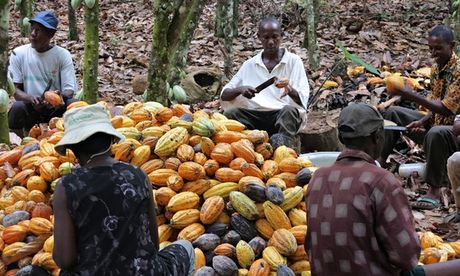While Ghana, behind Ivory Coast, is the second largest exporter of Cocoa in the world (its chief agricultural export commodity), any economic statistical source today clearly shows that oil & gas is fast becoming its major national revenue source.
Last year, 2016 Ghana Export earnings data as disclosed by the country’s central bank shows: Gold exports value at $4.9 billion, Cocoa - $2.7 billion and Crude Petroleum - $1.4 billion(as compared to a $1.9bn in 2015) owed mainly to the global fall in crude oil prices).
However, the depleting nature of crude and natural gas reserves is at the root of the intense debate and effort often witnessed in oil exporting countries like Nigeria, Russia, Saudi Arabia with Ghana now on the league, to diversify or create other export commodities in a bid to save their economic future.
Perhaps, this administration under President Nana Akufo Addo recognizes that need and today (via the President’s first state of the union address) made a highly probable commitment by outlining agriculture as the future of the nation’s economy. He further said his administration will encourage farming across the country and mentioned that $125 million Canadian dollars has been secured to fund agricultural mechanization activities in the country paramount among which is the, “one village – one dam†programme.
The flaws with the plan, however, are certain forces that drive today’s global economy -technology: the shift from man-power driven manufacturing or service delivery to high-tech softwares that demand specialized knowledge not just on a technical basis, but also to manage the information-driven environment they operate; rural-urban migration, and a rapidly increasing desire among young people to acquire skills that will make them needed in the world market (not just Ghana).
All these and several others makes agricultural promotion more geared towards national food security and less to being the economic future of the Republic of Ghana.
Many Ghanaians and observers around the world with interest in the country’s economy believe it is not enough to promise stimulus packages for various industries with no specifics, there is need for balance and a concrete effort(like that made towards the prioritized agricultural sector) to invest in research and technology, science education, a broad entrepreneurial development programme and a commitment to make products from the various higher institutions in the country more ‘practical’ to today’s labor market.





